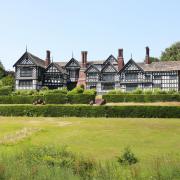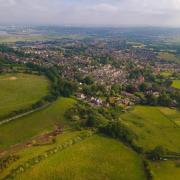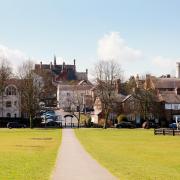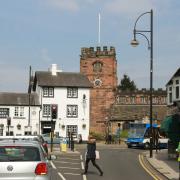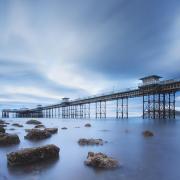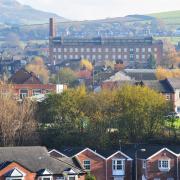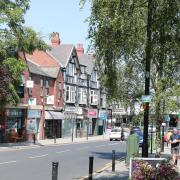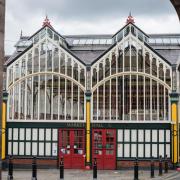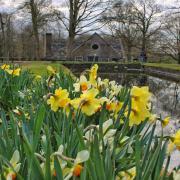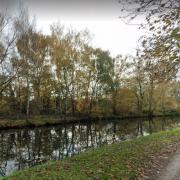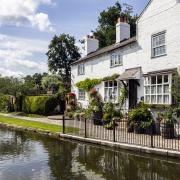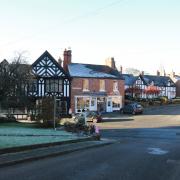Heswall’s scenery is just one of many assets which have led to it being declared as one of the best places to live in the region
When Heswall was named among the top ten places in the north west in which to live by the Sunday Times, the newspaper’s Home supplement wasn’t really telling the residents of this charming Wirral town anything they didn’t already know.
A wide range of elements had been taken into consideration to compile the rankings including transport links, quality of schools, natural beauty, low crime rate, property prices, cultural life and unemployment figures. And each area was also assessed on its own particular assets such as whether it has a local festival, boasted fascinating architecture or was set in close (but not too close!) proximity to an airport.
The guide praised the area’s schools, calling it a ‘magnet for families’ while also emphasising natural beauty and ‘lots of sporting facilities, including leisure centres and a golf club’.
Heswall ticks all those boxes and many more besides, not least, its elevated situation on the peninsula’s west coast affording outstanding views across the Dee estuary towards the Welsh hills as well as a fascinating history stretching back before the Norman conquest.
Dennis Clegg, chairman of Heswall Society, which celebrates its 60th anniversary this year, said: ‘I think the Sunday Times hit the nail on the head. Heswall is a super place to live. I moved here 45 years ago and have never wanted to leave because it is such a vibrant town with beautiful countryside. There are lots of active societies and plenty to do.’
Though the society is heavily involved in conservation issues, Mr Clegg said its role was not simply to live in the past. ‘On the contrary, all four buildings shortlisted for the Heswall Society Award 2013 are modern or recent conversions.’
The desirability of Heswall as a place to live, however, can come at a hefty price. The first four homes for sale listed on the Rightmove website range between £1.35 and £1.8m.
There are, it can be said, two Heswalls – the busy, bustling ‘top’ village with a wide variety of excellent shops and supermarkets, businesses, and an restaurants around the junction of Telegraph Road and Pensby Road and the quieter and quaint lower village, protected by a conservation order and characterised widespread use of attractive red local sandstone.
Lower Heswall is home to St Peter’s Parish Church, part dating from 1306, though most was rebuilt after being severely damaged by a lightning strike in 1875, from where a short stroll brings one seamlessly into picturesque Gayton with splendid homes set along quiet tree-lined avenues. Here too is laid out Heswall golf course - the club in Cottage Lane, having been founded in 1902 - boasting stunning views across the Dee.
Heswall is surrounded by large expanses of splendid open country providing walks that enjoy spectacular views including Heswall Dales, an area of dry, sandy heath land overlooking the River Dee with the status of both Site of Special Scientific Interest and Local Nature Reserve. There are also the Beacons, also overlooking the Dee, Poll Hill, highest point on the Wirral, Whitfield Common, The Puddydale and the Wirral Way which follows the route of the old West Kirby to Hooton railway line which can be enjoyed on foot, by bike or on horseback.
HISTORY
*The history of Heswall stretches beyond the Domesday Book where it is listed as ‘Eswelle’, a derivation of ‘Hazel Well’. It remained a small village of farmers and fishermen centred around St. Peter’s Church, with cottages dotted around the heath land until well into the 19th Century, but according to local historian Gavin Chappell, the locals engaged in another line of business - smuggling.
In his book Wirral Smugglers, Wreckers and Pirates, (Countyvise, £7.99) Gavin describes how in the 18th and 19th Centuries, contraband for Parkgate, Neston, or further inland was unloaded at night on Heswall or Gayton Beach.
He said: ‘The shore was a wild, desolate place, half a mile from the nearest village; the steep hillsides were swathed in woodland where almost anything could be concealed. For smaller operations, goods would be hidden aboard Irish packet boats, coal sloops heading for Denhall Colliery, cattle boats, or even ships of the Royal Navy.
‘Almost everybody in was involved in smuggling or at the very least benefited from it - even the clergy. The revenue men were regarded as tyrants,’ added Gavin, who was brought up in HeswalL and developed a fascination for the subject after visiting a cave in the garden of a private house in the village.’
Heswall began to prosper (lawfully!) when wealthy merchants from Liverpool set up holiday retreats because of the spectacular views across the Dee to Wales, the attractive countryside and the invigorating fresh air. The coming of the railway enabled easy commuting to Chester and Liverpool and the 20th century saw great increases in population.
PATIENTS PLACE
The Royal Liverpool Children’s Hospital originally opened in Heswall as Liverpool Country Hospital for Children in 1909. It stood on the opposite side of Telegraph Road from the ‘Puddydale’ with its a tall square clock tower and extensive grounds with views over the Dee estuary.
One of its most famous patients was Beatles’ drummer Ringo Starr, who spent two years there after being diagnosed with chronic pleurisy as a child. The hospital closed in 1985 and the site is now occupied by a Tesco supermarket.
FAMOUS FACES
*The qualities that have made Heswall one of the most desirable places to live in the north west has made it a magnet for many famous footballers, primarily those who have played for Liverpool or Everton. But Heswall also boasts a coterie of personalities who were born here, partly due to the former location of the children’s hospital.
Among them are Sir Ian ‘Beefy’ Botham, English cricket’s best all-rounder of all time, now a pundit on test match coverage, and legendary and influential BBC disc jockey, radio presenter and music journalist John Peel. He was born John Robert Parker Ravenscroft in Heswall in 1939 and died, aged 65 on a working holiday in Peru in 2004.
Peel is just one of a remarkable roll call of musicians with Heswall connections. Stephen Hough, internationally celebrated classical concert pianist and this year’s patron of Heswall’s Arts Festival was born here as was Andy McCluskey, lead singer of 1980s’ pop band Orchestral Manoeuvres In The Dark and founder of Atomic Kitten and Ian Astbury, lead vocalist with rock band The Cult.
Other notables include comedian and former Bullseye host Jim Bowen, Premier League referee Mike Dean and Christian Furr, youngest artist to have painted an official portrait of the Queen. BBC newscaster Fiona Bruce went to Gayton Primary School, Beatle Paul McCartney bought his late father a house in Baskervyle Road and Thomas Henry Ismay, founder of the White Star Line, built his mansion Dawpool just up the road in Thurstaston in 1884. It was demolished just 43 years later.
ARTS FESTIVAL
Heswall Arts Festival was conceived as ‘a whim of an idea’ inside the head of Dr Valerie Warr, and since 2011 has grown enormously. This year’s programme, from 28th September to 11th October, crammed in more than 100 diverse events, from concerts featuring a multitude of genres and exhibitions to science days and even football skills for children.
Dr Warr the festival’s director, a chartered mechanical engineer who spent most of her working life at Shell, has pursued a parallel career in music as an instrumentalist and organiser of concerts and functions.
‘I play the saxophone and clarinet very seriously and have been in lots of orchestras. These days I run my own, the Orchestra dell’Arte, which I am very proud to say, is to become the orchestra-in-residence at St George’s Hall in Liverpool and begins a series of concerts there from November 24th.’
OPERATIC SOCIETY
Not only is the Heswall Society marking its 60th birthday, the Heswall Operatic Society is celebrating its centenary. Founded on the eve of the Great War in 1913, though its first performance came four years later, the group rehearses at Thingwall Recreation Centre and also stages its productions there, Heswall Hall and the Gladstone Theatre in Port Sunlight.
Mrs Lesley Lyne, whose husband Peter is the society’s chairman and sons are active members, has been performing with the group for more than 20 years. She said: ‘We concentrate on revues, concerts, Gilbert and Sullivan shows and popular musicals such as Oklahoma, Me and My Girl and My Fair Lady. I love it and my sons, who are 16 and 21 and were brought up with the music, love it too.’
The Centenary Concert, staged at Thingwall and Wallasey, was appropriately entitled 100 Not Out.




